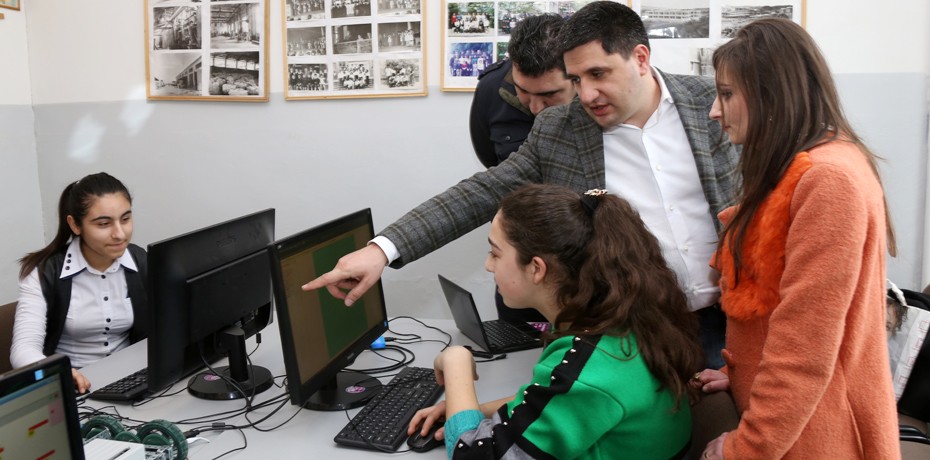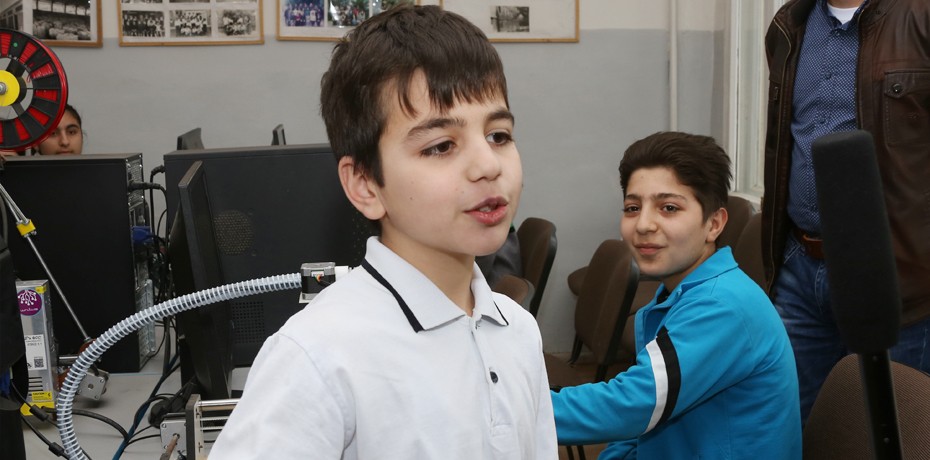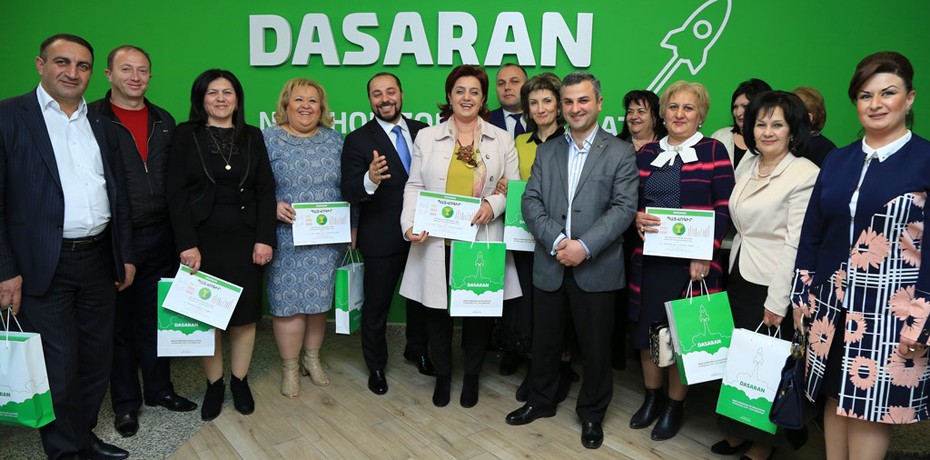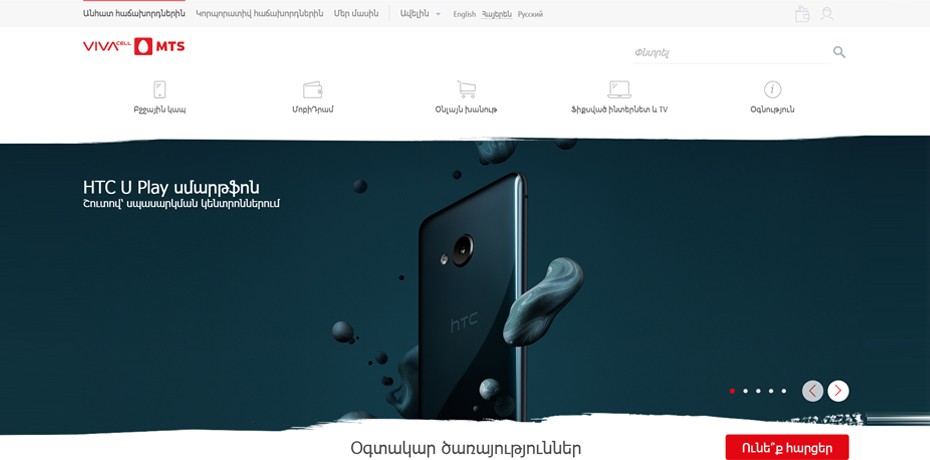«I decided to become an engineer, not a programmer, for that's not what I want. I shall work at the creation of a robot with artificial superintelligence. While working alone during my robotics courses I often failed, but when I united forces with my friend Garik, we succeeded», says Edgar Ghalumyan, a student of “Armath” engineering laboratory of Azatamut secondary school in Tavush region, to the supporters of the project from Ucom and Union of the Information Technology Enterprises (UITE).
The children acquiring engineering and programming skills in this laboratory, are mainly 6th-7th grade pupils, who try to apply their knowledge of algebra, geometry and physics. These children try to perform the computer modelling, printing of different items, programme games, create animations. Some of them demonstrated their abilities in a technological camp.
«I want to become an architect and create buildings where the movement of people will be easier than ever», - dreams Garik Qamalyan, a student of the same laboratory.
«In the long-term result of this corporate social responcibility project we should have a creative, inventive generation, the one useful for our homeland. It is important for these children to bring to life everything they told us about», said Hayk Yesayan, Director General at Ucom.
Let us note, that according to the Memorandum of Cooperation signed between the Union of Information Technology Enterprises (UITE) and Ucom, the latter invests to open around 70 more engineering club-laboratories named “Armath” in 9 regions of Armenia. Hayk Yesayan, the Director General at “Ucom”, visits the existing “Armath” labs on a regular basis, meets their students, gets acquainted with the their achievements and follows up the progress.
The educational curriculum of “Armath” engineering laboratories aims to promote the technological education in all schools of the Armenian communities, to assist pupils in their early interest emergence in modern high technology, to promote the development of engineering mindset from early ages and to prepare competent students.
The project enables practical support for the integration of qualified IT-specialists into the Armenian and world markets, the exchange of the experience between them, and the attraction of large-scale investments into the IT-industry. It is noteworthy, that the software and assembly drawings of the labs-developed equipment are open to public. The computer programs and systems are “armenianized” to the extension possible, while during the project implementation for the acquisition of the equipment and software, the priority is given to the local producers, the bright example of which serve the high-quality three-dimensional (3D) printers, mini-computers, robotics kits and other devices produced in Armenia.

17:29 | 24.09.25 | Articles
Jacopo Losso on Cross-Border Investments and Why Armenia Attracts Angels










